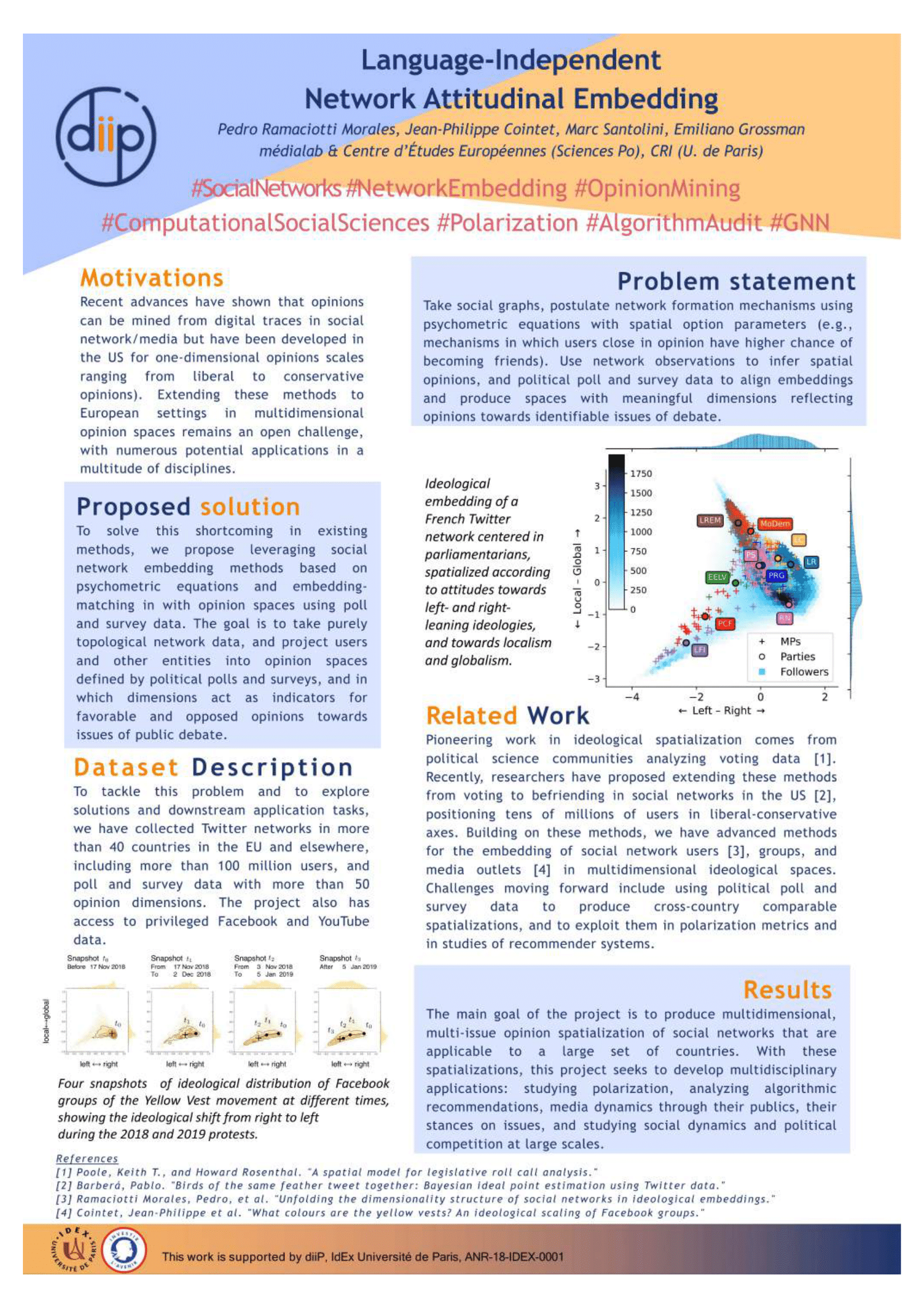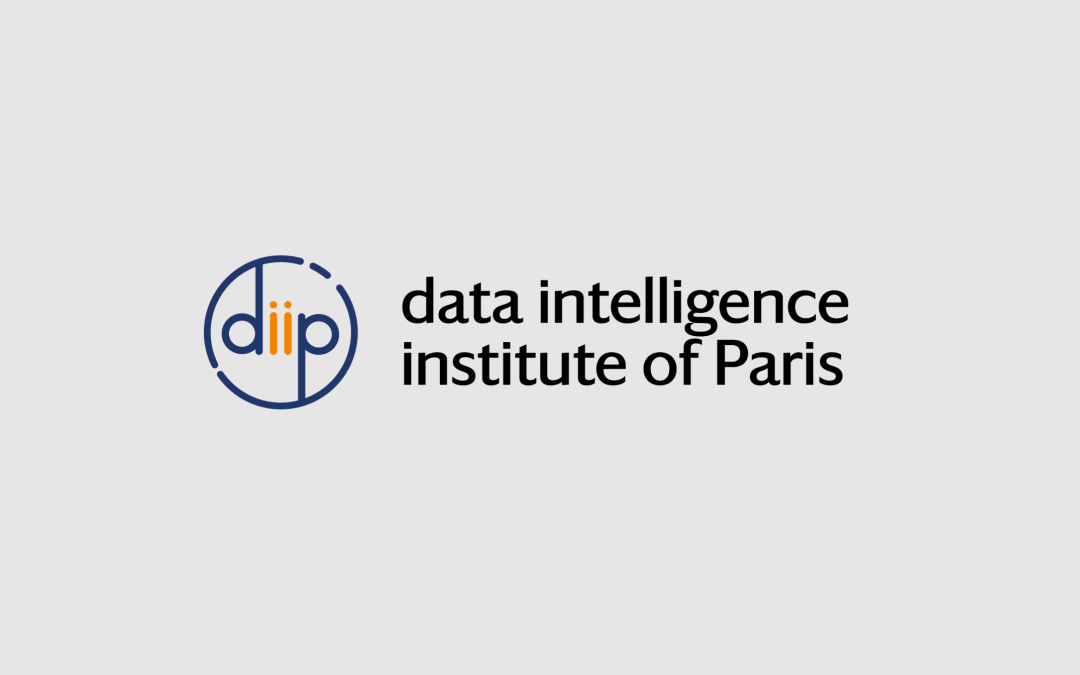2022
Strategic Projects
@Computer Science
+Political Science
#network embedding
#sparse embedding ideological scaling
#attitudinal data
#ideologies
#polarization
#party systems
Project Summary
Public opinion on different issues of public debate is traditionally studied through polls and surveys. Recent advancements in network ideological scaling methods, however, show that digital behavioral traces in social platforms can be used to infer opinions at a massive scale. Current approaches allow to position social network users on ideological scales ranging extreme left- to extreme right-wing stances. This is suited for two-party systems and binary social divides, as the case of the US. However, no similar methodology exists for European (and other) settings, where public political debate is structured along several different issues and cleavages, and party systems impose a multi-polar landscape. To overcome this gap, we propose a novel approach that mixes ideological scaling of social graphs with external attitudinal data. The former uses social network structures to embed users in spaces where dimensions are informative of ideological traits. The latter provide stances for a few users on attitudinal scales (from most opposed to most favorable) for a range of well-identified issues of public debate: e.g., taxation, immigration, European integration, environmental protection, civil liberties. Mixing the two, we aim at embedding a massive number of users in attitudinal spaces where positions along several dimensions indicate opinions towards identifiable issues structuring public debate. Attitudinal embeddings finds numerous applications explored within the project, from recommendation algorithm audit and design, to the study of party systems and political competition online, polarization, and informational and media dynamics.
Pedro Ramaciotti-Morales

Projects in the same discipline

Diffusion Models Based Visual Counterfactual Explanations
2024 Masters Projects @Computer Science #Visual counterfactual explanations #Diffusion Models #Identification of subtle phenotypesProject Summary to be updated Valerie MezgerProjects in the same discipline

OpenStreetMap and Sentinel-2 data for the production of environmental indices for demographic studies
2023Masters Projects@Computer Science +Demography #Remote sensing#Demography#Deep learning#Sentinel 2#OpenStreetMap#Local climate zones#Africa Project Summaryto be updated. Sylvain Lobry Projects in the same discipline

Diffusion Models Based Unpaired Image-to-Image Translation to Reveal Subtle Phenotypes
2023Masters Projects@Computer Science +Mathematics/Statistics+Biology+neurodevelopment #Image-to-image translation#Deep generative models#Diffusion models#Subtle Phenotypes#Neurodevelopment Project SummaryUnpaired image-to-image translation methods aim at learning a...

Generalization of a method enabling to update vineyard geographic databases from satellite data
2023Masters Projects@Computer Science +Earth Sciences/Geosciences #image time series analysis#deep learning#optical satellite imagery#agriculture monitoring#crop type mapping#vineyard#VENUS images Project Summaryto be updated. Camille Kurtz Projects in the same...
